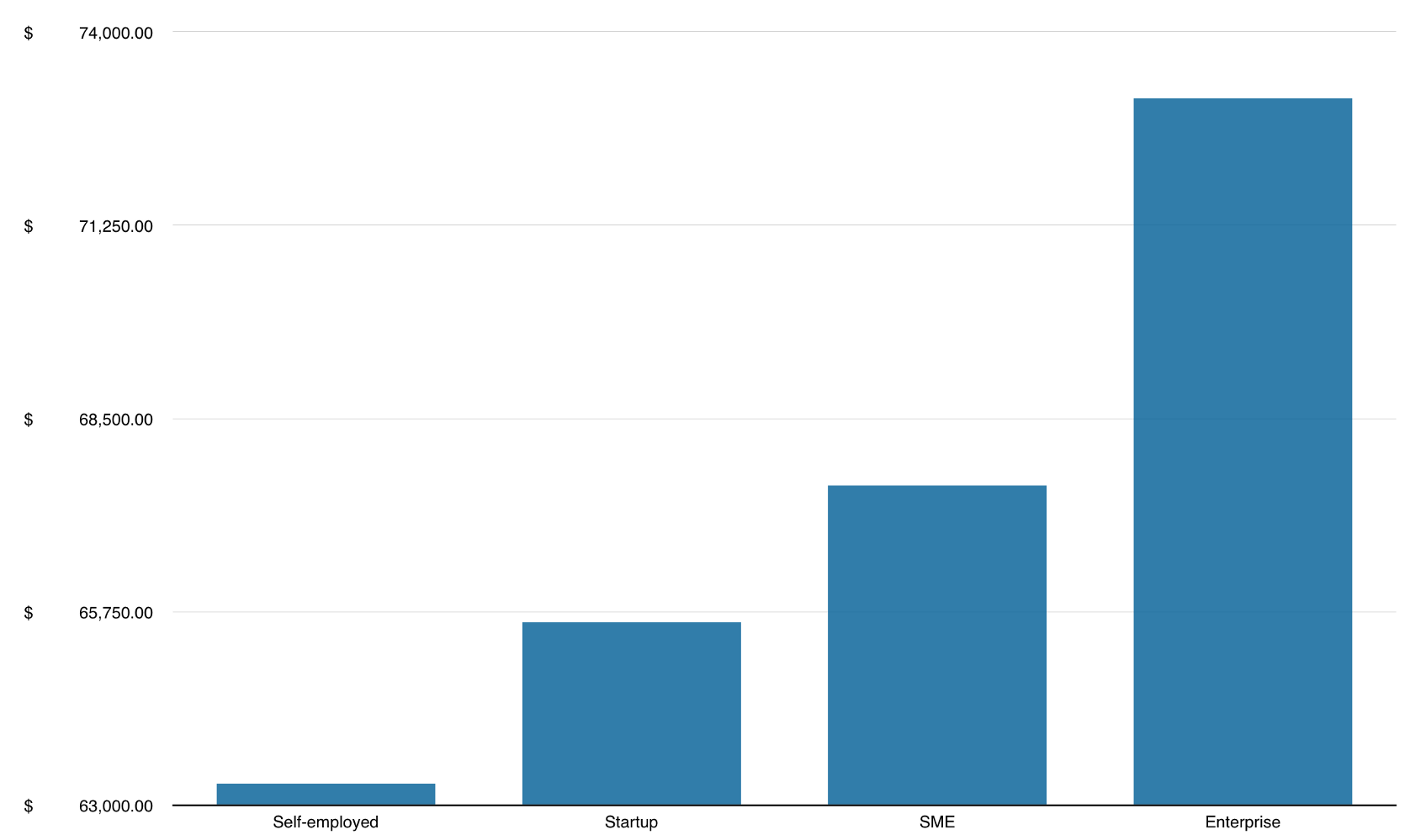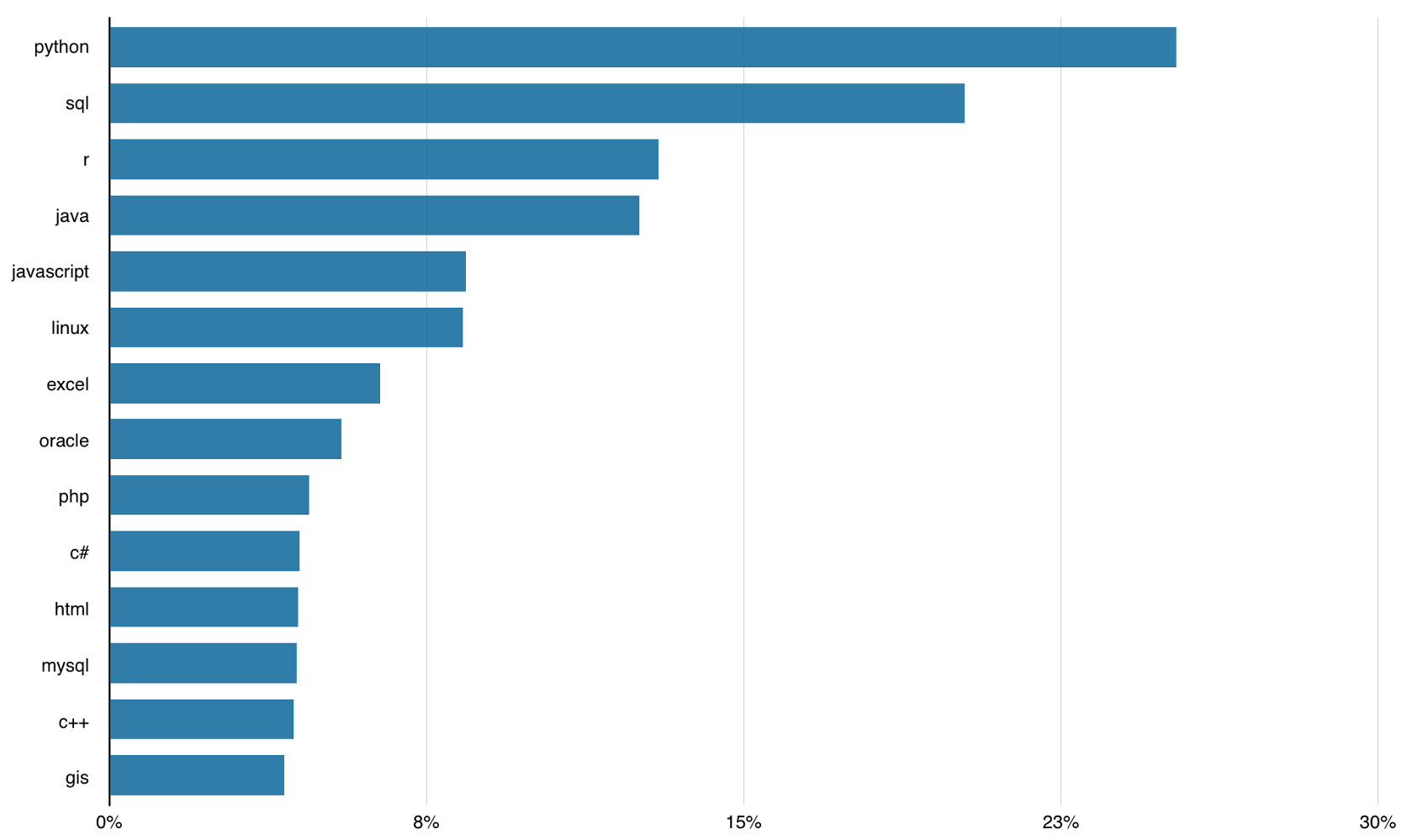Every day I come into work and sit opposite Greg. Greg (in my humble opinion) is a complete badass. He directly turns information that we’ve had hanging around for years and years into actual currency. Single handedly, he generates more direct revenue than any one individual in the business.
When we were shuffling seating positions not too long ago (we now have room for that standing desk I’ve always wanted ❤), we were afraid to turn off his machine in fear of losing thousands upon thousands of dollars. I remember somebody saying “guys, we can’t unplug Skynet”. Nobody fully knows how it works. Nobody except Greg.
We joked that by turning off his equipment, we’d ruin Greg’s on-the-side Bitcoin mining gig that he was probably running off the back of the company network. We then all looked at one another in a brief moment of silence. We were all thinking the same thing — it wouldn’t surprise any of us if Greg was actually doing this. We wouldn’t know any better.
To many, what Greg does is like modern day alchemy.
In reality, Greg is a data scientist — an increasingly crucial role that helps businesses deliver more meaningful, relevant interactions with their customers. I like to think of them more as new-age alchemists, who wield keyboards instead of perfectly choreographed vials and alembics.
This week – find out how to become a data alchemist with R. Save 50% on some of our top titles… or pick up any 5 for $50! Find them all here!
Content might have been king a few years back. Now, it’s data. Everybody wants more — and the people who can actually make sense of it all. By surveying 20,000 developers, we found out just how valuable these roles are to businesses of all shapes and sizes.
Let’s take a look.
Every Kingdom Needs an Alchemist
Even within quite a technical business, Greg’s work lends a fresh perspective on what it is other developers want from our content. Putting the value of direct revenue generation to one side, the insight we’ve derived from purchasing patterns and user behaviour is incredibly valuable. We’re constantly challenging our own assumptions, and spending more time looking at what our customers are actually doing. We’re not alone in taking this increasingly data-driven approach.
In general, the highest data science salaries are paid by large enterprises. This isn’t too surprising considering that’s where the real troves of precious data reside. At such scale, the aggregation and management of data alone can warrant the recruitment of specialised teams. On average though, SMEs are not too far behind when it comes to how much they’re willing to pay for top talent.

Average salary by company size. Apache Spark was a particularly important focus going forward for folks in the Enterprise segment.
What’s clear is that data science isn’t just for big businesses any more. It’s for everybody. We can see that in the growth of data-related roles for SMEs. We’re paying more attention to data because it represents the actions of our customers, but also because we’ve just got more of it lying around all over the place.
Irrespective of company size, the range of industries we captured (and classified) was colossal. Seems like everybody needs an alchemist these days.
They Double as Snake Charmers
When supply is low and demand is high in a particular job market, we almost always see people move to fill the gap. It’s a key driver of learning. After all, if you’re trying to move to a new role, you’re likely to be developing new skills.
It’s no surprise that Python is the go-to choice for data science. It’s an approachable language with some great introductory resources out there on the market like Python for Secret Agents. It also has a fantastic ecosystem of data science libraries and documentation that can help you get up and running quite quickly.

Percentage of respondents who said they used a given technology. When looking at roles in more detail, you see strong patterns between technologies used. For example, those using Python were most likely to also be using R.
When you dive deeper into the data you start to notice a lot of crossover between certain segments. It was at this point where we were able to also start seeing the relationships between certain technologies in specific segments. For example, the Financial sector was more likely to use R, and also paid (on average) higher salaries to those who had a more diverse technical background.
Alchemists Have Many Forms
Back at a higher level, what was really interesting is the natural technology groupings that started to emerge between four very distinct ‘types’ of data alchemist.
“What are they?”, I hear you ask.
The Visualizers
Those who bring data to life. They turn what otherwise would be a spreadsheet or a copy-and-paste pie chart into delightful infographics and informative dashboards. Welcome to the realm of D3.js and Tableau.
The Wranglers
The SME all-stars. They aggregate, clean and process data with Python whilst leveraging the functionality of libraries like pandas to their full potential. A jack of all trades, master of all.
The Builders
Those who use Hadoop and other OS tools to deploy and maintain large-scale data projects. They keep the world running by building robust, scalable data platforms.
The Architects
Those who harness the might of the enterprise toolchain. They co-ordinate large scale Oracle and Microsoft deployments, the sheer scale of which would break the minds of mere mortals.
Download the Full Report
In a Land of Data, the Alchemist is King
We used to have our reports delivered in Excel. Now we have them as notebooks on Jupyter. If it really is a golden age for developers, data scientists must be having a hard time keeping their inbox clear of all the recruitment spam.
What’s really interesting going forward is that the volume of information we have to deal with is only going to increase. Once IoT really kicks off and wearables become more commonly accepted (the sooner the better if you’re Apple), businesses of all sizes will find dealing with data overload to be a key growing pain — regardless of industry.
Plenty of web services and platforms are already popping up, promising to deliver ‘actionable insight’ to everybody who can spare the monthly fees. This is fine for standardised reporting and metrics like bounce rate and conversion, but not so helpful if you’re working with a product that’s unique to you.
Greg’s work doesn’t just tell us how we can improve our SEO. It shows us how we can make our products better without having to worry about internal confirmation bias. It helps us better serve our customers.
That’s why present-day alchemists like Greg, are heroes.










![How to create sales analysis app in Qlik Sense using DAR method [Tutorial] Financial and Technical Data Analysis Graph Showing Search Findings](https://hub.packtpub.com/wp-content/uploads/2018/08/iStock-877278574-218x150.jpg)






